Service Dog Training Program for Veterans
K9 Partners for Patriots Service Dog Training Program is designed specifically for veterans battling PTSD, traumatic brain injury (TBI) and/or military sexual trauma (MST). A 6-month journey of mutual rescue where veterans train side-by-side with rescue dogs to become the gold standard of service dog teams all at no cost to the veteran.
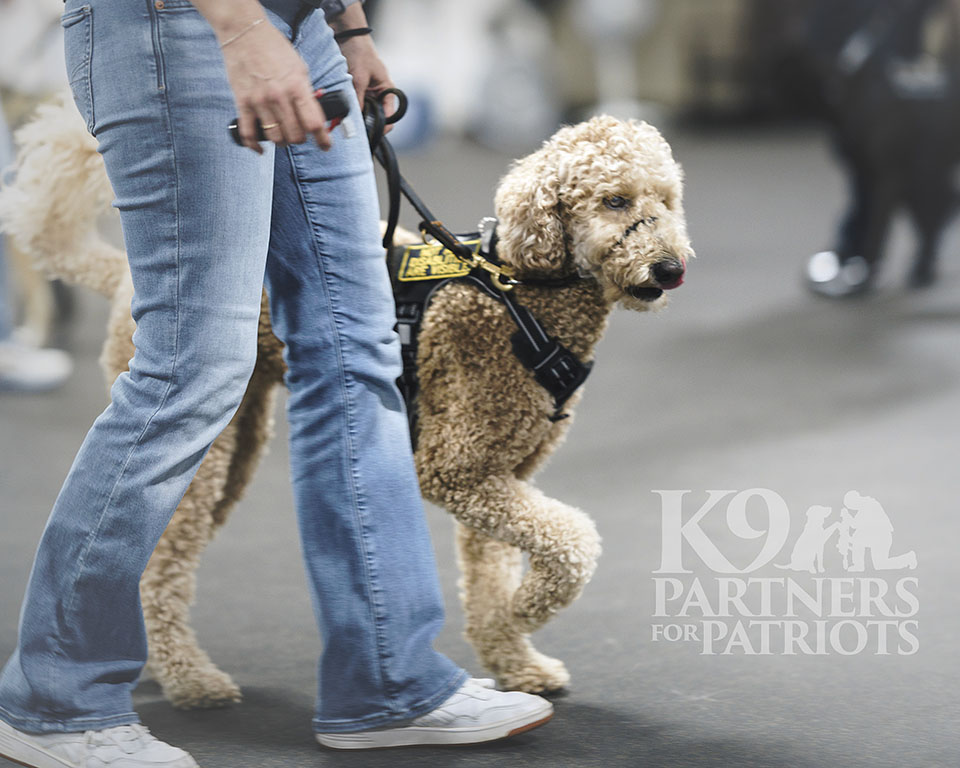
Healing Begins Through Trust, Teamwork, and a Powerful Bond
K9 Partners for Patriots empowers veterans living with PTSD, traumatic brain injury, or military sexual trauma through a life-changing 6-month Service Dog Training Program. This is a journey of mutual rescue—where each veteran is carefully matched with a rescue dog and they train together, side-by-side, to become the gold standard of service dog teams. Guided by certified trainers and surrounded by a community that understands their battles, veterans gain access to deep connection, structure, and unwavering support—all at absolutely no cost. Here, healing begins through trust, teamwork, and the powerful bond that reminds every veteran they never have to walk their path alone.
At K9 Partners for Patriots, we know the best way to heal invisible wounds is through connection. That’s why our program doesn’t hand veterans a pre-trained dog. Instead, we guide veterans to train their own matched rescue dogs — from day one — in a structured 6-month journey.
The result is more than a service dog. It’s an unbreakable bond built on trust, teamwork, and purpose.
A Unique Approach to Service Dog Training
Most service dog programs deliver a dog already trained. Our approach is different — and more effective. Veterans are directly involved in every stage of their dog’s training.
- From the first leash handoff, the veteran is the trainer.
- Certified trainers guide and support each step.
- This creates lasting trust and confidence that cannot be replicated.
This isn’t just dog training. It’s veteran healing.
6-Month Service Dog Training Journey
The program is structured to help both the veteran and the dog progress together.
PHASE 1: Basic Obedience
- Building Foundation Commands
- Establishing Communication and Trust
PHASE 2: Advanced Obedience & Public Access
- Practicing in Real-World Environments.
- Navigating Crowds, Stores, Airports, and Public Spaces.
PHASE 3: Service Task Training
- Learning specialized tasks like grounding during anxiety episodes, nightmare interruption, and creating personal space.
- By graduation, the veteran and dog are a service dog team, fully prepared for public access and daily life together.
Comprehensive Support Beyond Training
K9 Partners for Patriots is more than a training program — it’s a community of support.
In-house Licensed Clinical Social Worker (LCSW)
Optional counseling for veterans who want additional support.
Peer Community
Veterans train in groups, forming connections with others who understand their journey.
Canine Wellness
Monthly massage and health support to keep service dogs healthy and strong.
This holistic approach helps both the veteran and the dog thrive.
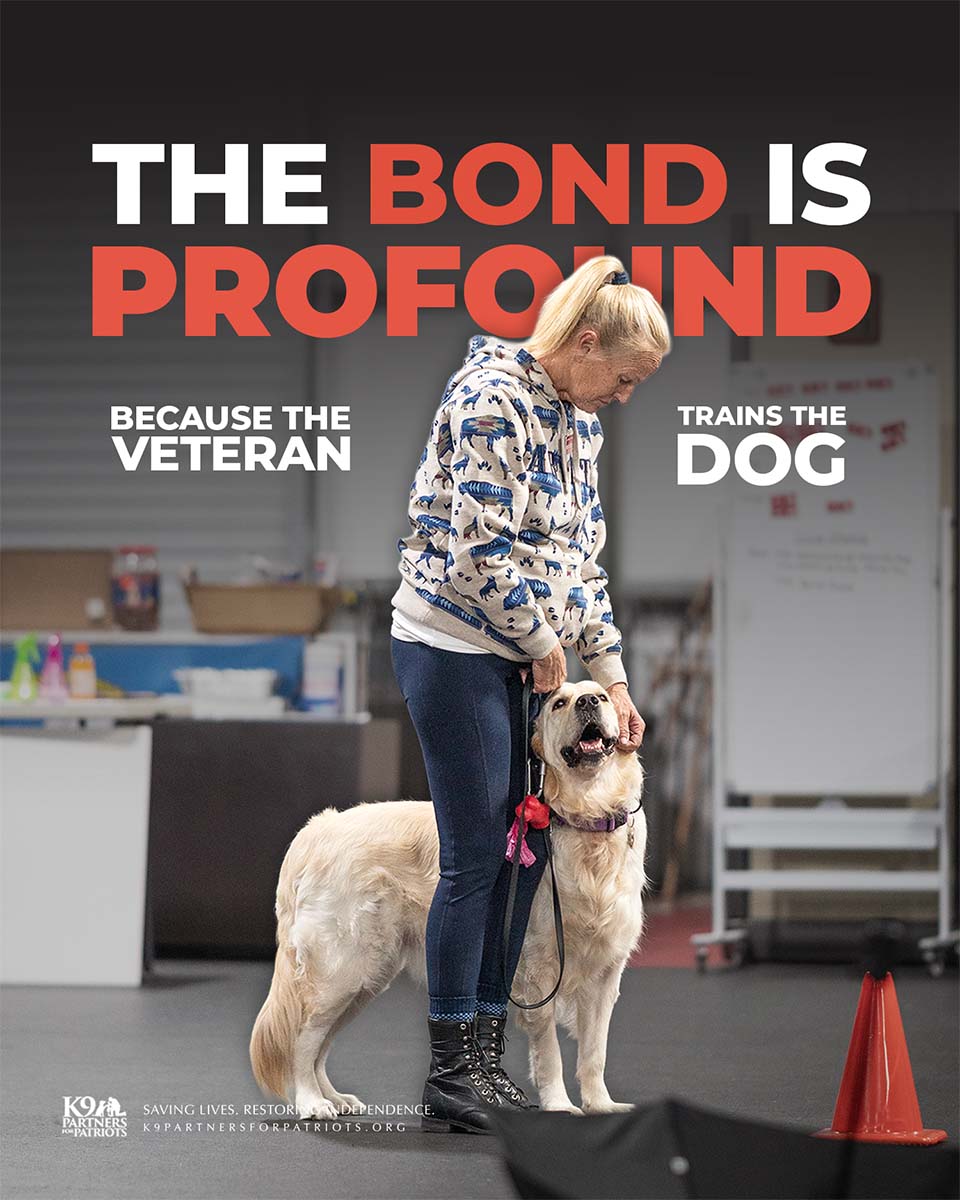
Why It Works | The Veteran Dog Bond
Because veterans do the training, the bond is profound. The dog learns not just commands, but the veteran’s specific needs.
This partnership is built on:
- Mutual trust.
- Shared experiences.
- Day-by-day progress together.
Requirements and Eligibility
Our program serves veterans diagnosed with:
- Post-Traumatic Stress Disorder (PTSD)
- Traumatic Brain Injury (TBI)
- Military Sexual Trauma (MST)
Rescue dogs are temperament-tested and provided at no cost to the veteran. Veterans may use their own dog if it meets requirements.
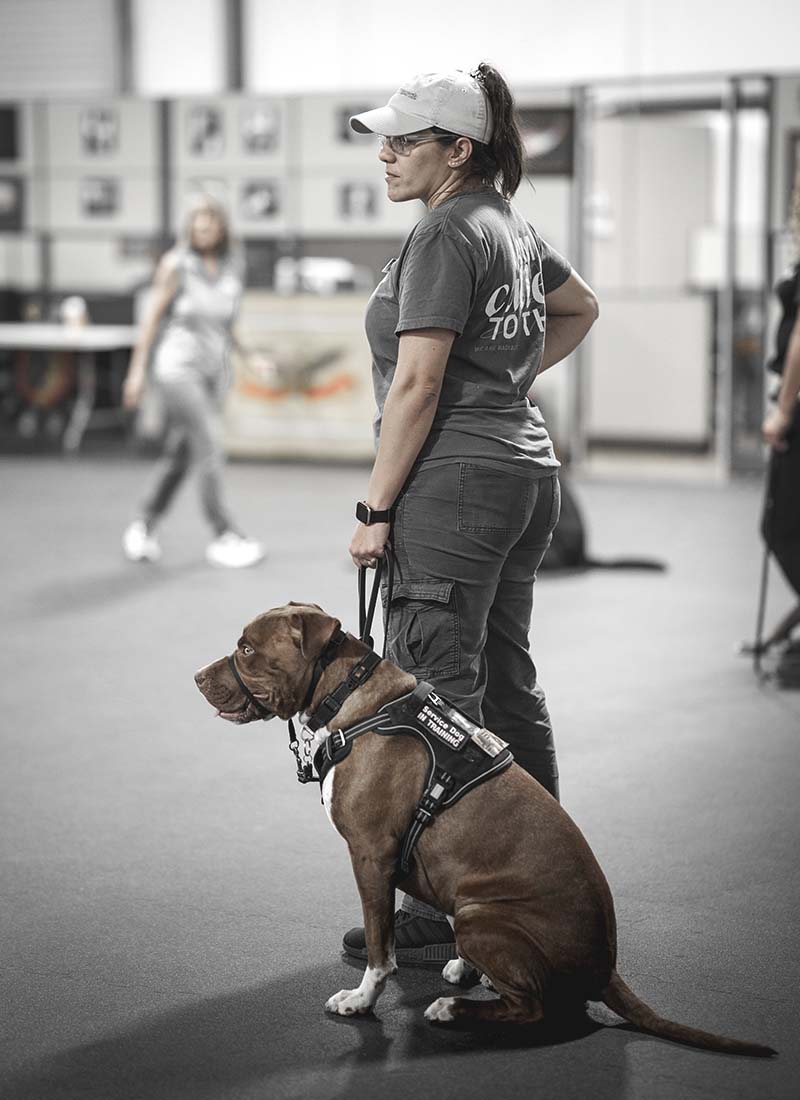
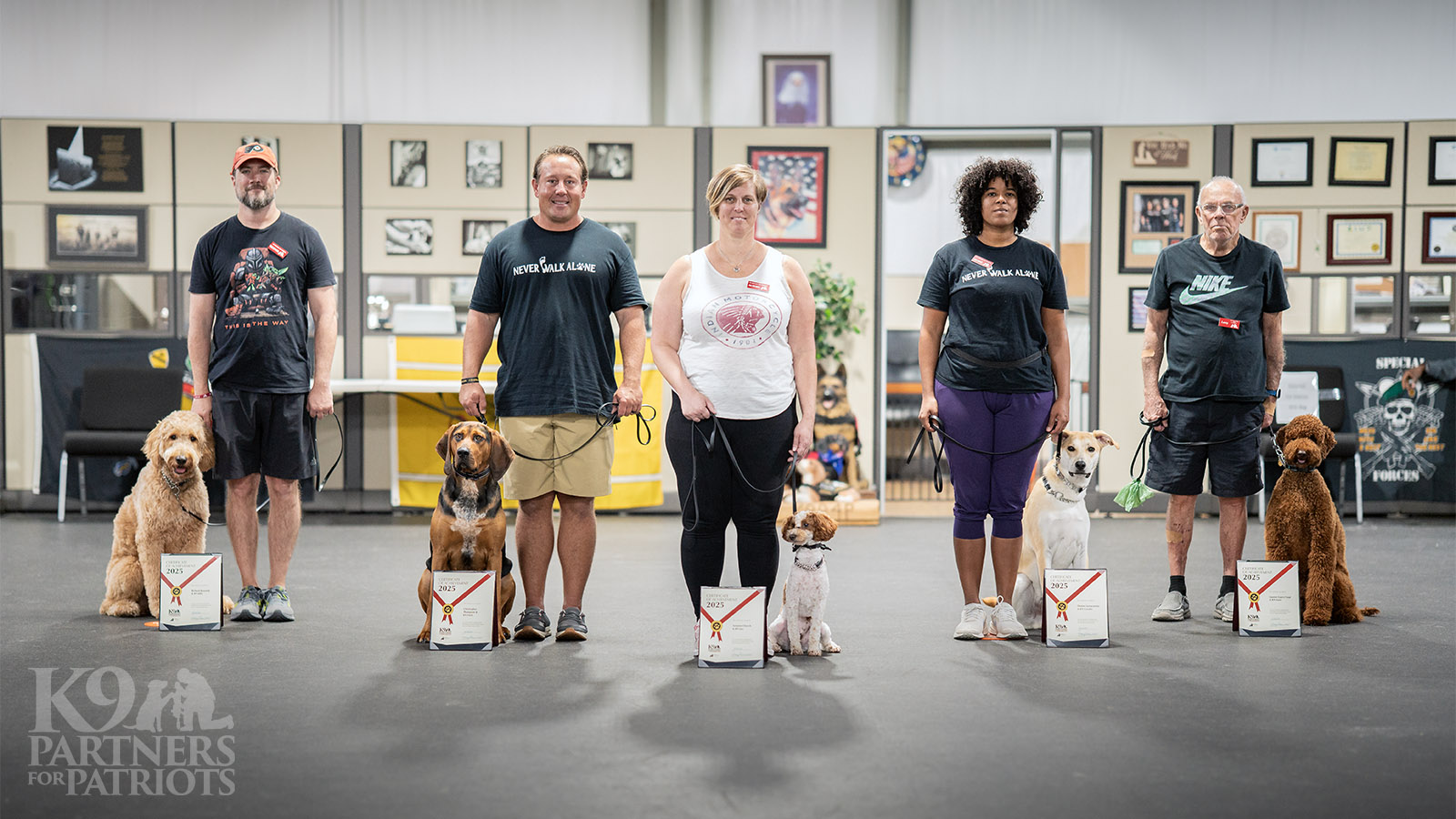
Life After Graduation
Graduation day is just the beginning.
- Each team receives a Mission Complete Pak, with tools and supplies to continue their journey.
- Alumni are part of the K9P4P family for life.
- Continued support, guidance, and community are always available.
Veterans leave not just with a service dog, but with renewed confidence and connection.
Healing Begins with Hope
Take the first step today.
If you are a veteran living with PTSD, TBI, or MST, this program is for you.
Steps to Apply:
- Visit our Application Page.
- Complete the form and required documentation.
- Our team will contact you with next steps.
Veterans — take the first step towards independence. Apply Now.
